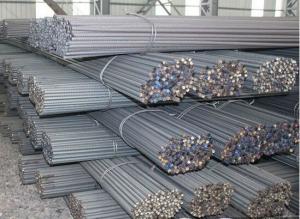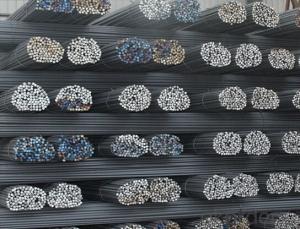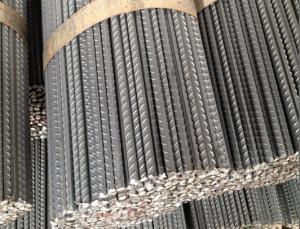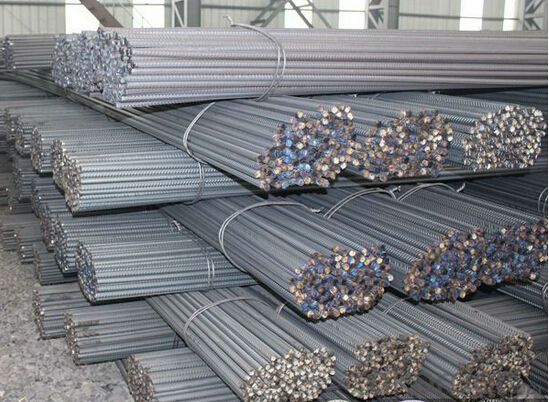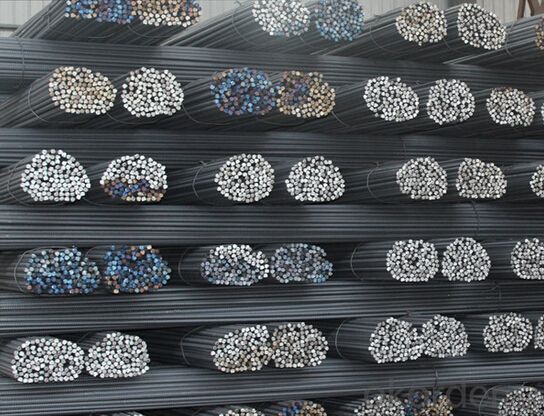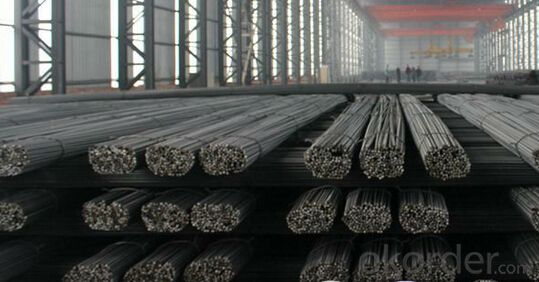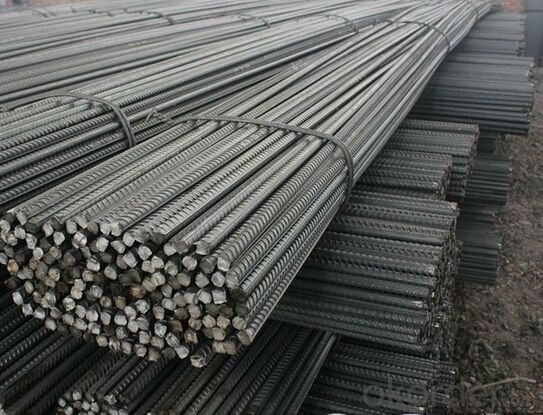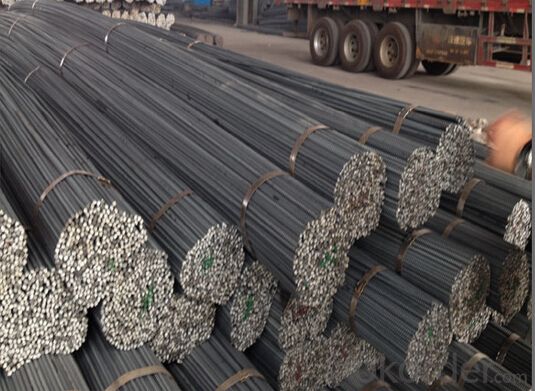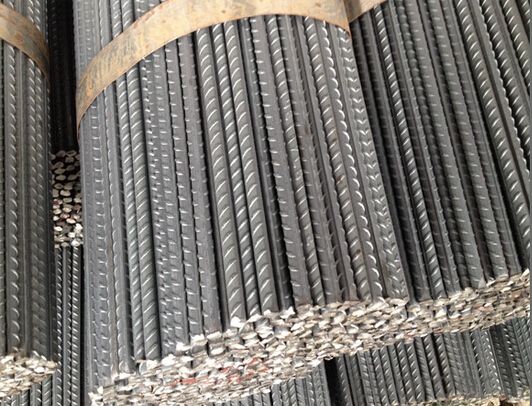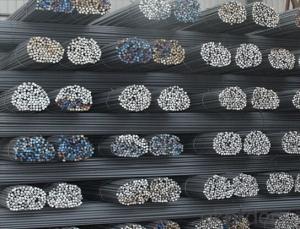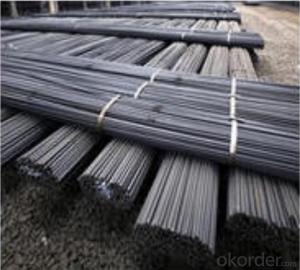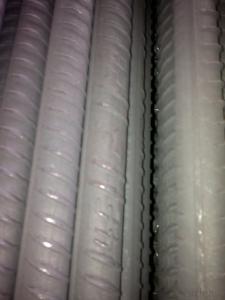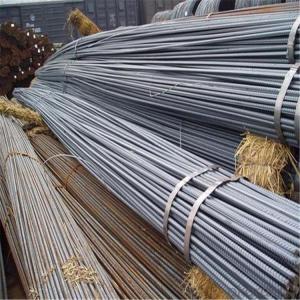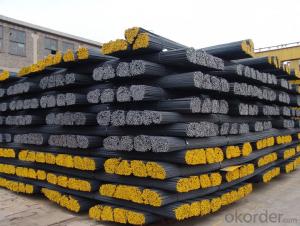Deformed Bars Grade JIS G3112-2004 SD345
- Loading Port:
- Tianjin
- Payment Terms:
- TT or LC
- Min Order Qty:
- 50 m.t.
- Supply Capability:
- 10000 m.t./month
OKorder Service Pledge
OKorder Financial Service
You Might Also Like
Specification
Deformed Bars Grade JIS G3112-2004 SD345
Details of Deformed Bars Grade JIS G3112-2004 SD345
Name | Deformed Bar |
Shape | Round Bar |
Standard | 1.GB1499.2-2007, HRB335, HRB400E 2. ASTM A615 Gr.40, Gr.60 3.BS4449/1997 |
Diameter | 6mm-50mm |
Length | 6m, 8m, 9m,12m as standard or as request |
Test | SGS/UT 100% Elements Testing |
Certificate: | ISO/Mill Certificate |
Service: | 24 hours online service / |
more than 20 years trading and manufacture | |
Quality Assurance: | the third party inspection, such as SGS, BV, TUV…etc. is acceptable |
Packaging Details: | Seaworthy Packaging or as per customer's packing instruction |
Specification of Deformed Bars Grade JIS G3112-2004 SD345
Standard | Grade | Yield Strength Mpa | Tensile Strength | Elongation% |
BS4449:1997 | 250 | 250 | 295 | 22 |
460A | 460 | 485 | 12 | |
460B | 460 | 500 | 15 | |
GB1499.2-2007 | HRB335/335E | 335 | 455 | 17 |
HRB400/400E | 400 | 540 | 17 | |
HRB500/500E | 500 | 630 | 16 | |
ASTM A615 & A615M-04a | GRADE40 | 280 | 420 | 12 |
GRADE60 | 420 | 620 | 9 | |
GRADE75 | 520 | 690 | 7 | |
JIS G3112-2004 | SD295A | ≥ 295 | 440-600 | 17 |
SD295B | 295-390 | ≥ 440 | 17 | |
SD345 | 345-440 | ≥490 | 19 | |
SD390 | 390-510 | 560 | 17 | |
SD490 | 490-625 | ≥ 620 | 13 |
Size | WEIGHT | WEIGHT | QUANTITY | ||
LENGTH 6M | LENGTH 12M | LENGTH 6M | LENGTH 12M | ||
6 | 0.222 | 1.332 | 2.664 | 751 | 375 |
8 | 0.395 | 2.37 | 4.74 | 422 | 211 |
10 | 0.617 | 3.702 | 7.404 | 270 | 135 |
12 | 0.888 | 5.328 | 10.656 | 188 | 94 |
14 | 1.21 | 7.26 | 14.52 | 138 | 69 |
16 | 1.58 | 9.48 | 18.96 | 106 | 53 |
18 | 2 | 12 | 24 | 83 | 42 |
20 | 2.47 | 14.82 | 29.64 | 67 | 34 |
22 | 2.98 | 17.88 | 35.76 | 56 | 28 |
25 | 3.85 | 23.1 | 46.2 | 43 | 22 |
28 | 4.83 | 28.98 | 57.96 | 35 | 17 |
32 | 6.31 | 37.86 | 75.72 | 26 | 13 |
36 | 7.99 | 47.94 | 95.88 | 21 | 10 |
40 | 9.87 | 59.22 | 118.44 | 17 | 8 |
50 | 15.42 | 92.52 | 185.04 | 11 | 5 |
CNBM Introduction of Deformed Bars Grade JIS G3112-2004 SD345 Supplier
CNBM International Corporation is the most import and export platform of CNBM group(China National Building Material Group Corporation) ,which is a state-owned enterprise, ranked in 270th of Fortune Global 500 in 2015.
With its advantages, CNBM International are mainly concentrate on Cement, Glass, Iron and Steel, Ceramics industries and devotes herself for supplying high quality series of refractories as well as technical consultancies and logistics solution.
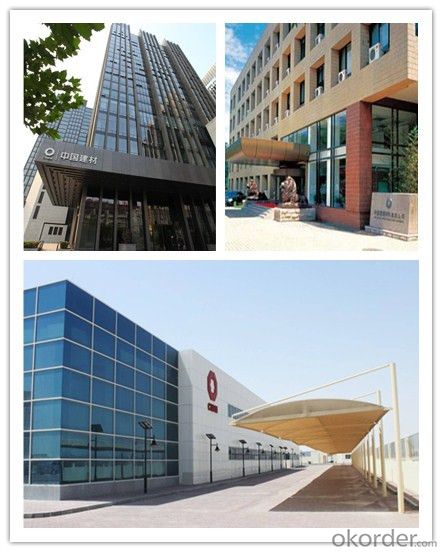
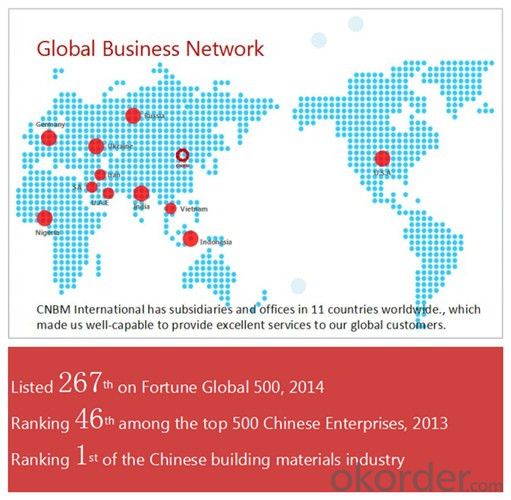
Packaging & Delivery of Deformed Bars Grade JIS G3112-2004 SD345
Packaging Detail | Sea worthy packing /as per customer's packing instruction |
Delivery Detail | 15 ~ 40 days after receiving the deposit |
Products Show
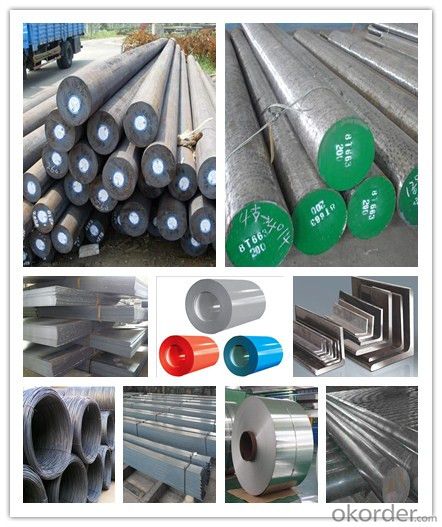
FAQ:
Are you a trading company or manufacturer? | Manufacturer |
What’s the MOQ? | 3 metric ton |
What’s your delivery time? | 15-35 days after downpayment received |
Do you Accept OEM service? | Yes |
what’s your delivery terms? | FOB/CFR/CIF |
What's the Payment Terms? | 30% as deposit,70% before shipment by T/T |
Western Union acceptable for small amount. | |
L/C acceptable for large amount. | |
Scrow ,Paybal,Alipay are also ok | |
Why choose us? | Chose happens because of quality, then price, We can give you both. Additionally, we can also offer professional products inquiry, products knowledge train (for agents), smooth goods delivery, excellent customer solution proposals. |
What's your available port of Shipment? | Main Port, China |
What’s your featured services? | Our service formula: good quality+ good price+ good service=customer's trust
|
Where are your Market? | Covering more than 160 countries in the world |
- Q: What are the environmental considerations of using special steel?
- Special steel production has significant environmental considerations. The extraction and processing of raw materials, such as iron and coal, contribute to deforestation, habitat destruction, and greenhouse gas emissions. Moreover, the high energy requirements during steel production result in carbon dioxide emissions, contributing to climate change. Special steel also often requires the use of alloying elements, such as chromium and nickel, which can lead to toxic waste and pollution if not properly managed. Therefore, careful monitoring and implementation of sustainable practices are crucial to minimize the environmental impact associated with using special steel.
- Q: What is the role of special steel in the manufacturing of precision instruments?
- Special steel plays a crucial role in the manufacturing of precision instruments as it provides the necessary strength, durability, and resistance to corrosion required for these delicate instruments to perform accurately and reliably. The unique properties of special steel enable precision instruments to withstand extreme conditions, maintain dimensional stability, and ensure high precision measurements, making it an essential material in their production.
- Q: How does special steel perform under extreme cold conditions?
- Special steel performs well under extreme cold conditions due to its high strength, toughness, and resistance to brittleness. It retains its mechanical properties even at low temperatures, making it suitable for various applications in sub-zero environments.
- Q: What is the fatigue strength of special steel?
- The fatigue strength of special steel refers to its ability to withstand repeated loading or cyclic stress without failure.
- Q: How is carbon steel used in the manufacturing of pipes and tubes?
- Carbon steel is commonly used in the manufacturing of pipes and tubes due to its durability, strength, and cost-effectiveness. It is a versatile material that can withstand high temperatures and pressures, making it suitable for various applications such as oil and gas pipelines, water distribution systems, and structural supports. Additionally, carbon steel can be easily welded and fabricated, allowing for efficient production and customization of pipes and tubes to meet specific requirements.
- Q: What are the different methods of surface tumbling for special steel?
- There are several methods of surface tumbling for special steel, including barrel tumbling, vibratory tumbling, and centrifugal tumbling. Barrel tumbling involves placing the steel parts in a rotating barrel with abrasive media, which helps to remove burrs, sharp edges, and surface imperfections. Vibratory tumbling uses a vibrating machine with abrasive media to achieve similar results. Centrifugal tumbling, on the other hand, involves placing the steel parts in a rotating drum and using centrifugal force to propel abrasive media against the surfaces, resulting in a smooth and polished finish.
- Q: What are the limitations of welding special steel?
- Considerations need to be made for several limitations associated with welding special steel. Firstly, special steel, such as high-alloy steels or heat-resistant steels, often contains higher levels of carbon, which increases the risk of cracking during welding. To minimize this risk, it is necessary to carefully control preheating, interpass temperature, and post-weld heat treatment. Another limitation is the potential for distortion and warping during welding. Special steels have different thermal conductivity and expansion coefficients compared to carbon steels, causing them to dissipate heat more quickly and be more susceptible to distortion. To minimize these effects, proper clamping and fixturing techniques are required. Impurities, such as sulfur and phosphorus, can also affect special steels, leading to the formation of brittle compounds during welding. To prevent this, it is essential to use high-quality filler materials and ensure the cleanliness of the base metal. Specific welding techniques and parameters are often necessary for special steels. For example, some high-alloy steels require slow cooling rates to avoid the formation of brittle microstructures. This may involve specialized cooling methods like post-weld heat treatment or controlled cooling rates. Lastly, the cost of special steels is generally higher than that of carbon steels, which can limit their use in certain applications with budget constraints. Overall, although special steels offer enhanced properties for specific applications, their welding process requires careful consideration and adherence to specific procedures to overcome the limitations related to cracking, distortion, impurities, and cost.
- Q: What are the common alloys used in special steel?
- Some common alloys used in special steel include stainless steel (which contains chromium and often nickel), tool steel (which contains tungsten, vanadium, and sometimes cobalt), and high-speed steel (which contains tungsten, molybdenum, and sometimes cobalt).
- Q: How are magnesium alloys used in lightweight structures?
- Magnesium alloys are used in lightweight structures due to their exceptional strength-to-weight ratio. They are commonly employed in the aerospace industry for constructing aircraft components, such as fuselage frames, wings, and engine parts. Additionally, magnesium alloys find applications in automotive manufacturing, where they contribute to reducing the weight of vehicles, thus enhancing fuel efficiency. These alloys are also utilized in the production of portable devices, sporting equipment, and other products that require a combination of strength and lightness.
- Q: How does special steel contribute to product innovation?
- Product innovation is greatly influenced by the use of special steel, which offers various advantages. Firstly, special steel provides superior mechanical properties, including high strength, hardness, and wear resistance. These qualities permit designers and engineers to develop innovative products that can endure higher levels of stress, function in extreme conditions, and have extended lifespans. An excellent illustration of this is the aerospace industry, where special steel is frequently employed to manufacture lightweight yet robust components that enhance fuel efficiency and overall aircraft performance. Furthermore, special steel can be customized to possess specific attributes such as corrosion resistance, heat resistance, or magnetic properties. This enables the creation of groundbreaking products capable of operating in demanding environments like marine structures, power plants, or electronic devices. For instance, in the medical field, special stainless steel alloys are extensively used to produce implants and surgical instruments that are biocompatible, long-lasting, and resilient to rigorous sterilization processes. Additionally, special steel can be fabricated with precise dimensions and tolerances, facilitating intricate and complex designs. This fosters product innovation by allowing the production of intricate components such as gears, bearings, or turbine blades, which necessitate high precision and reliability. These advanced designs have the potential to enhance the efficiency, performance, and overall functionality of various products, ranging from automotive engines to wind turbines. Moreover, the versatility of special steel permits its combination with other materials, such as polymers or composites, to create hybrid products with unique properties. This opens up avenues for innovation in various industries, including automotive, construction, and consumer electronics. For example, special steel-reinforced concrete structures exhibit increased robustness and durability, while special steel-reinforced polymers enhance the strength and impact resistance of lightweight components. In conclusion, special steel contributes significantly to product innovation by offering enhanced mechanical properties, tailored characteristics, precise dimensions, and compatibility with other materials. These capabilities empower designers and engineers to develop innovative products with improved performance, durability, and functionality, thereby driving advancements across diverse industries.
Send your message to us
Deformed Bars Grade JIS G3112-2004 SD345
- Loading Port:
- Tianjin
- Payment Terms:
- TT or LC
- Min Order Qty:
- 50 m.t.
- Supply Capability:
- 10000 m.t./month
OKorder Service Pledge
OKorder Financial Service
Similar products
Hot products
Hot Searches
Related keywords
